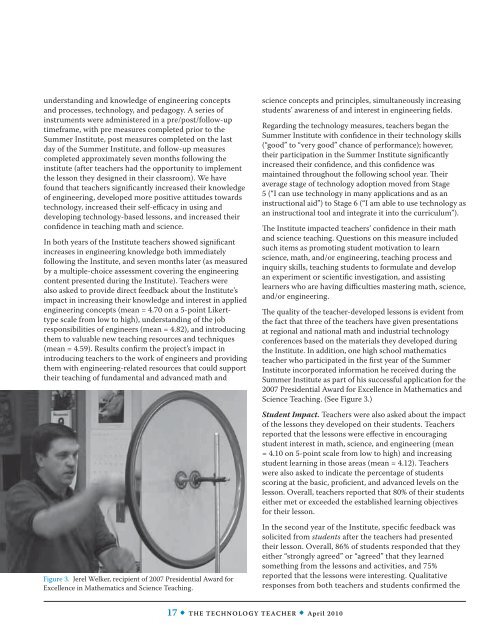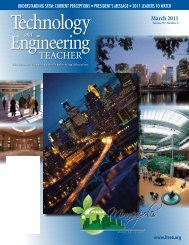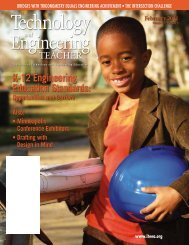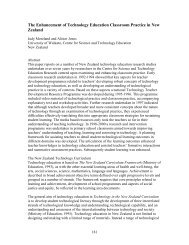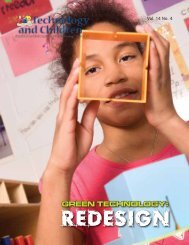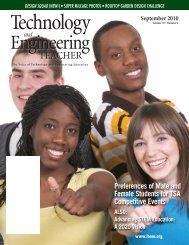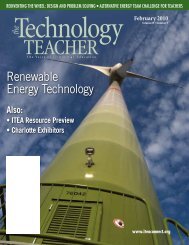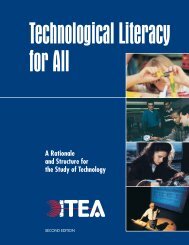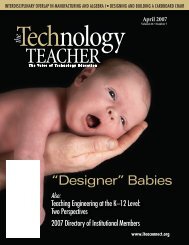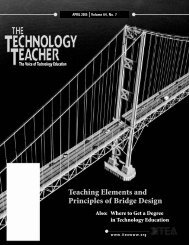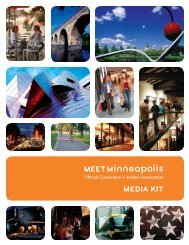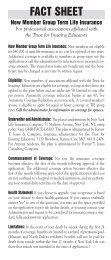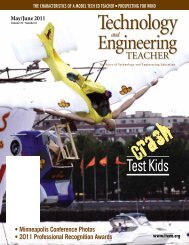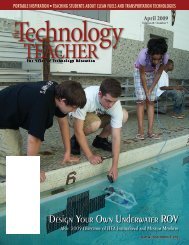Medical Technology: organ harvesting and Transplants
Medical Technology: organ harvesting and Transplants
Medical Technology: organ harvesting and Transplants
You also want an ePaper? Increase the reach of your titles
YUMPU automatically turns print PDFs into web optimized ePapers that Google loves.
underst<strong>and</strong>ing <strong>and</strong> knowledge of engineering concepts<br />
<strong>and</strong> processes, technology, <strong>and</strong> pedagogy. A series of<br />
instruments were administered in a pre/post/follow-up<br />
timeframe, with pre measures completed prior to the<br />
Summer Institute, post measures completed on the last<br />
day of the Summer Institute, <strong>and</strong> follow-up measures<br />
completed approximately seven months following the<br />
institute (after teachers had the opportunity to implement<br />
the lesson they designed in their classroom). We have<br />
found that teachers significantly increased their knowledge<br />
of engineering, developed more positive attitudes towards<br />
technology, increased their self-efficacy in using <strong>and</strong><br />
developing technology-based lessons, <strong>and</strong> increased their<br />
confidence in teaching math <strong>and</strong> science.<br />
In both years of the Institute teachers showed significant<br />
increases in engineering knowledge both immediately<br />
following the Institute, <strong>and</strong> seven months later (as measured<br />
by a multiple-choice assessment covering the engineering<br />
content presented during the Institute). Teachers were<br />
also asked to provide direct feedback about the Institute’s<br />
impact in increasing their knowledge <strong>and</strong> interest in applied<br />
engineering concepts (mean = 4.70 on a 5-point Likerttype<br />
scale from low to high), underst<strong>and</strong>ing of the job<br />
responsibilities of engineers (mean = 4.82), <strong>and</strong> introducing<br />
them to valuable new teaching resources <strong>and</strong> techniques<br />
(mean = 4.59). Results confirm the project’s impact in<br />
introducing teachers to the work of engineers <strong>and</strong> providing<br />
them with engineering-related resources that could support<br />
their teaching of fundamental <strong>and</strong> advanced math <strong>and</strong><br />
Figure 3. Jerel Welker, recipient of 2007 Presidential Award for<br />
Excellence in Mathematics <strong>and</strong> Science Teaching.<br />
science concepts <strong>and</strong> principles, simultaneously increasing<br />
students’ awareness of <strong>and</strong> interest in engineering fields.<br />
Regarding the technology measures, teachers began the<br />
Summer Institute with confidence in their technology skills<br />
(“good” to “very good” chance of performance); however,<br />
their participation in the Summer Institute significantly<br />
increased their confidence, <strong>and</strong> this confidence was<br />
maintained throughout the following school year. Their<br />
average stage of technology adoption moved from Stage<br />
5 (“I can use technology in many applications <strong>and</strong> as an<br />
instructional aid”) to Stage 6 (“I am able to use technology as<br />
an instructional tool <strong>and</strong> integrate it into the curriculum”).<br />
The Institute impacted teachers’ confidence in their math<br />
<strong>and</strong> science teaching. Questions on this measure included<br />
such items as promoting student motivation to learn<br />
science, math, <strong>and</strong>/or engineering, teaching process <strong>and</strong><br />
inquiry skills, teaching students to formulate <strong>and</strong> develop<br />
an experiment or scientific investigation, <strong>and</strong> assisting<br />
learners who are having difficulties mastering math, science,<br />
<strong>and</strong>/or engineering.<br />
The quality of the teacher-developed lessons is evident from<br />
the fact that three of the teachers have given presentations<br />
at regional <strong>and</strong> national math <strong>and</strong> industrial technology<br />
conferences based on the materials they developed during<br />
the Institute. In addition, one high school mathematics<br />
teacher who participated in the first year of the Summer<br />
Institute incorporated information he received during the<br />
Summer Institute as part of his successful application for the<br />
2007 Presidential Award for Excellence in Mathematics <strong>and</strong><br />
Science Teaching. (See Figure 3.)<br />
Student Impact. Teachers were also asked about the impact<br />
of the lessons they developed on their students. Teachers<br />
reported that the lessons were effective in encouraging<br />
student interest in math, science, <strong>and</strong> engineering (mean<br />
= 4.10 on 5-point scale from low to high) <strong>and</strong> increasing<br />
student learning in those areas (mean = 4.12). Teachers<br />
were also asked to indicate the percentage of students<br />
scoring at the basic, proficient, <strong>and</strong> advanced levels on the<br />
lesson. Overall, teachers reported that 80% of their students<br />
either met or exceeded the established learning objectives<br />
for their lesson.<br />
In the second year of the Institute, specific feedback was<br />
solicited from students after the teachers had presented<br />
their lesson. Overall, 86% of students responded that they<br />
either “strongly agreed” or “agreed” that they learned<br />
something from the lessons <strong>and</strong> activities, <strong>and</strong> 75%<br />
reported that the lessons were interesting. Qualitative<br />
responses from both teachers <strong>and</strong> students confirmed the<br />
17 • The <strong>Technology</strong> Teacher • April 2010


